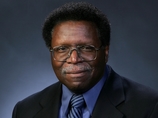Universal
Systems Language (USL) and its Automation, the 001 Tool Suite, for
Designing and Building Systems and Software: - Margaret Hamilton
A Webinar Designed for
Systems and Software Engineers and Architects
Inordinate sums
of money are spent on system design and software development
projects, huge portions of it wasted; critical systems run the risk
of failure, sometimes leading to catastrophe. The premise made here
is that this is in large part because of the paradigm on which the
languages used to define systems are based; and that the well known
problems associated with doing business as usual can be significantly
reduced by using a language based on a radically different paradigm,
one that is preventive instead of curative. The Universal Systems
Language is such a language. Based on systems theory—to a great
extent derived from our study of the Apollo onboard flight software
effort—according to users, USL eliminates any preconceived notions
because it is a world unto itself; a completely new way to think
about systems. Much of what seems counter intuitive with traditional
approaches, which tend to be software-centric, becomes intuitive with
this systems-centric approach. Together with its associated 001 Tool
Suite, USL has evolved over decades and taken on multiple dimensions.
It was created to offer a means to solve problems previously
considered next to impossible to solve with traditional approaches.
With its preventive philosophy of inherently not allowing errors in
the first place, software becomes more reliable; yet, with higher
productivity in its development.
Presenter
 Margaret
Hamilton
Margaret
Hamilton
Margaret
H. Hamilton is the founder and CEO of Hamilton Technologies, Inc. She
is responsible for the development and evolution of the Universal
Systems Language (USL) and its integrated systems-to-software life
cycle automation, the 001 Tool Suite; both of which are based on her
mathematically based systems paradigm, Development Before the Fact
(DBTF). Her research interests include systems theory; and formal
languages, methods, and tools for designing and developing preventive
systems and software. Margaret was in charge of the Apollo (and
Skylab) onboard flight software effort for the Lunar Module (LM) and
the Command Module (CM) while Director of the Software Engineering
Division at MIT's Charles Stark Draper Laboratory (CSDL). She
culminated this effort by leading her team in a study to determine
lessons learned from the Apollo flight software and its development.
USL/001 together with DBTF had as its origin this study of the Apollo
software.
Moderator
 Bob Epps
Bob Epps
Bob
is currently working in Lockheed Martin Corporate Engineering,
supporting System Architecture, Systems Engineering and Strategic
External Outreach activities. During his 16 year tenure at Lockheed
Martin, Bob has served as a senior manager and a technical leader
within the Software Engineering, Systems Engineering and Architecture
organizations. This includes serving as the Senior Manager of the
Architecture Integration Technology Center and Senior Manager
Computer Architecture Engineering.
Prior
to coming to Lockheed Martin, Bob was employed at Link Flight
Simulation, in Binghamton, NY. Bob’s career at Link spanned 25
years. He held Senior Engineering and Management positions in the
field of complex real-time system development, which included Systems
Engineering, System Architecture, Software Engineering, System
Integration and Independent Research & Development. During his
tenure at Link, he also led a National Security Industrial
Association (NSIA) Industry working group and technical track leader
in I/ITSEC conferences.
Bob
has a BS in Physics from Drexel University and MS in Applied
Mathematics from the State University of New York. Bob is currently a
member of IEEE, ACM, NDIA and INCOSE.
 Margaret
Hamilton
Margaret
Hamilton
 Bob Epps
Bob Epps